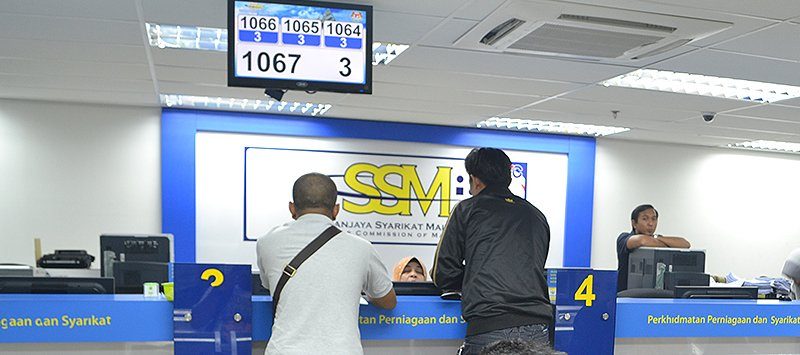Rights You Didn't Know You Had As An Online Shopper In Malaysia
There are laws in place that seek to protect e-consumers from unscrupulous traders.
Most of us are familiar with the idea of online shopping. It's convenient and you can pretty much buy anything online - from clothes, hot meals, IT products, homemade pastries, groceries, and more.
In this digital age, we often spend more time and money on e-commerce that we realise. Not only do we buy products online - either through e-commerce sites, blogs, or even social media - but we also spend money on various services such as travelling, insurance, and even telecommunications payments online.
With that said, the National Consumer Complaints Centre (NCCC) found that an increasing number of Malaysians have became victims to unscrupulous online merchants, with online scams topping the list of complaints.
1. Consumers have the right to receive sufficient and reliable information, especially before a transaction takes place
In August, the Ministry of Domestic Trade, Cooperatives and Consumerism (KPDNKK) announced that it will be enforcing the law to act against errant traders who do not display upfront information about its products and services.
Under the Consumer Protection (Electronic Trade Transactions) Regulations 2012, sellers are required to disclose the following information:
1. The full price of the goods or services, which must include taxes, transportation and other costs upfront
2. Name of the person operating the business or the company and business name
3. Business or company registration number
4. Email address, telephone number or address of the person running the business
5. Detailed description of the goods or services
6. Methods of payment accepted
7. Terms and conditions
8. Estimated delivery time
Those who do not comply with these rules may face these penalties, upon conviction:
1. Individual: First offence - A fine of up to RM50,000 or imprisonment up to three years, or both, upon conviction. Second, or subsequent offence - A fine of up to RM100,000, or imprisonment up to five years, or both.
2. Company: First offence - A fine of up to RM100,000. Second or subsequent offence - a fine of up to RM200,000. An additional fine of up to RM1,000 will be imposed on any person or company for each day for which the offence continues after the conviction.
An additional fine of up to RM1,000 will be imposed on any person or company for each day for which the offence continues after the conviction.
2. Consumers have the right to cancel a transaction
Under the law, consumers have the right to cancel, within the cooling-off period, any mail order sales and sales through electronic transactions that collect payment upfront for products and services yet to be rendered.
The Direct Sales And Anti-Pyramid Scheme Act (DSASA) 1993 states that goods or services valued at RM300 or above, is to be made in writing and shall contain the provision of 'cooling-off' period (10 working days).
During this period of time, a consumer has the right to reconsider his or her decision to buy the product or service. The consumer can choose to cancel the contract without any reason, by giving the written notice to the vendor, which can be personally delivered to the seller or sent by registered post.
It was reported in June that the authorities are looking to increase the cooling-off period to up to 14 days.
Meanwhile, consumers can also cancel a transaction if an online trader described a product wrongly and is found to be liable for misrepresentation, as per Section 34(1) of the Specific Relief Act 1950.
For example, a case of misrepresentation could be when a trader states that he or she is selling a black bottle, when in fact, it is a blue bottle. According to the law, the customer may choose to cancel the transaction and return the goods (in this case, the blue bottle), and the seller will have to reimburse the customer.
3. Consumers have the right to a refund
Goods or services provided on a schedule are known as "future services contracts" and it is illegal for sellers to say that they have a "no refund policy".
For example, if a customer has already paid an online company for a cleaning services package that is scheduled for a later date, the customer may cancel and ask for a refund.
According to Section 17 of the Consumer Protection Act, a consumer who cancels a future services contract can only be charged:
1. 5% of the full contract price;
2. the cost of any goods the consumer used or is keeping; or
3. the portion of the full contract price representing services received by the consumer
If a consumer has already paid the supplier more money than the supplier is entitled to, the supplier must refund the extra payment or make a refund available, within 14 days of the cancellation.
4. Consumers have the right to rectify errors
As per the Consumer Protection (Electronic Trade Transactions) Regulations, an online seller is required to provide appropriate means to enable the buyer to rectify any errors prior to the confirmation of the order made by the buyer.
This means that no matter which platform a seller uses to sell his/her goods or services, the seller must ensure that customers have the opportunity to correct any errors before they confirm and complete the transaction.
It is also specified in the law that the seller must acknowledge receipt of the order to the buyer without undue delay.
In the event that consumers are not satisfied with the goods and services provided, they may lodge a complaint to the respective authorities:
1. National Consumer Complaints Centre (NCCC)
Call +603-7876 9000, send an email to [email protected], or submit an online complaint by filling up the e-form on NCCC's website.
2. Domestic Trade, Cooperatives and Consumerism Ministry (KPDNKK)
Call 1-800-886-800, or submit a complaint online on KPDNKK's E-Aduan website.
Do take note of these tips that you can practice in case a dispute arises:
• Keep receipts and other records that can support and provide an accurate account of your complaint.
• Provide as many details as you can, such as the date of purchase and the salesperson you were dealing with.
• Keep a record of the date, time, and name and ID of the people you spoke to about your complaint. If the complaint cannot be addressed immediately, ask when you can reasonably expect a follow-up or a solution to the problem.
Consumers may also file claims with KPDNKK's Tribunal For Consumer Claims Malaysia to seek damages
The Tribunal is an independent body established to ensure that consumers have the option to file claims in a simple, inexpensive, and speedy manner.
Lawyer fees are be exorbitant but to file a case with Tribunal, a consumer only needs to pay a minimal fee of RM5.
According to KPDNKK, the Tribunal has jurisdiction to hear:
1. A claim for redress for the purchase of goods and services allowed under the jurisdiction of the Tribunal;
2. A claim that is less than RM25,000; and
3. Accrued claims within three years of the claim.
If you can, get goods or services from individuals or companies that are registered with the Companies Commission of Malaysia (SSM)
Any online business operators, including those who sell their products or services on Facebook or Instagram are required to register with the Companies Commission of Malaysia (SSM).
Under the Registration of Businesses Act, those who fail to register their business can be slapped with a fine no more than RM50,000, or jailed up to two years, or both upon conviction.
"Any sort of business that generates income must be registered. There is no exception," said Datuk Seri Alias Ahmad, who was the then-chairman.
SSM introduced a new standard of certification known as 'SSM BizTrust' in July. Online traders with BizTrust certificate will have a BizTrust standard certification seal or logo displayed on their website, to signify that the business complies with the standards and business ethics that have been set.
It is said that this was to help lessen the dodgy transactions that may happen from dealing with unregistered companies and to curb any illegal activities by online sellers that are set up specifically to dupe customers.





